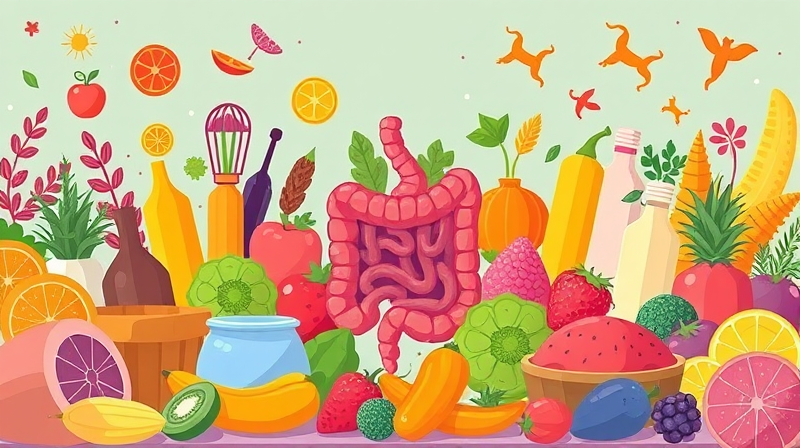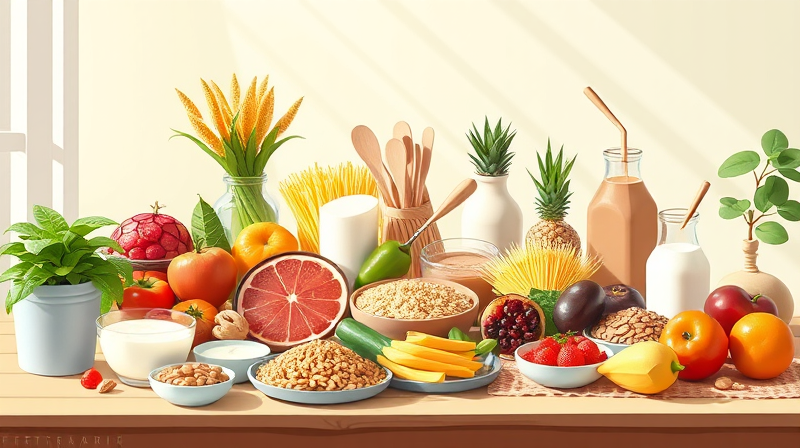Every small step toward incorporating more fruits and vegetables into your daily meals is a victory for your overall health. In today’s fast-paced world, it is easy to overlook the importance of fresh produce in our diets. However, by following simple, effective strategies, you can boost your intake of these essential foods and embrace a more nutritious lifestyle.
Recent dietary guidelines recommend that adults aim to consume 2 cups of fruit and 2.5 cups of vegetables daily on a 2,000-calorie diet. Despite these clear guidelines, many people fall short of these targets. Nonetheless, the good news is that increasing your fruit and vegetable consumption need not be a complicated or expensive venture. In fact, with a few mindful changes, you can transform your daily eating habits and create a foundation for sustained good health.
Practical Ways to Boost Your Produce Consumption
One effective strategy is to make fruits and vegetables readily available and appealing. Keeping washed and pre-cut produce in clear containers or placing a fruit bowl on your kitchen counter serves as a constant reminder to choose a healthy snack. This simple visual cue can encourage better eating habits and lead to a more balanced diet.
- Make Produce Visible: Place visible bowls of fruits on your kitchen counters and organize cut-up vegetables in your refrigerator. The easier it is to see these products, the more likely you are to reach for them when hunger strikes.
- Incorporate into Every Meal: Start your day with a boost of nutrients by adding vegetables like spinach, peppers, or tomatoes to your breakfast. Integrate fruits and vegetables into your lunch and dinner by filling at least half your plate with them.
- Explore New Options: Experiment with different fruits and vegetables from various color groups. Not only does this add variety and flavor to your meals, but it also ensures that your body receives a diverse range of nutrients.
- Use Convenient Choices: Stock up on frozen or canned options for days when fresh produce isn’t available. These alternatives are nutritious, budget-friendly, and can be easily incorporated into your meals.
- Blend It Up: Smoothies offer an excellent way to pack multiple servings of produce in one delicious drink. Combining fruits, vegetables, and a protein source like Greek yogurt can create a nutrient-rich breakfast or snack.
- Snack Smart: Replace processed snacks with fruits or vegetables. A banana, a cup of grapes, or carrot sticks with hummus are all wholesome options that help keep your energy steady throughout the day.
- Get Creative with Recipes: Explore new recipes that emphasize vegetables. Dishes such as zucchini lasagna or vegetable-packed casseroles not only satisfy your taste buds but also fortify your meals with essential vitamins and minerals.
- Use Vegetable Alternatives: Try substituting high-carb ingredients with vegetable alternatives. For instance, use cauliflower rice or zucchini noodles to reduce calories and add extra fiber.
- Add Extra Veggies: Elevate nutritional value by incorporating extra vegetables into your favorite dishes. A handful of spinach in pasta sauce or diced carrots in your meatloaf can make your meals both richer in flavor and more nutritious.
- Grill for Flavor: Embrace the outdoor cooking season by preparing vibrant vegetable kebabs. Grilling vegetables like bell peppers, mushrooms, and zucchini not only enhances their flavor but also preserves their nutritional integrity.
By gradually integrating these suggestions into your daily routine, you can significantly improve your produce intake over time. The journey toward a healthier lifestyle doesn’t require drastic changes; small, sustainable adjustments are key. Whether you are looking to boost your energy levels, enhance your mood, or lower the risk for certain health conditions, the benefits of a diet rich in fruits and vegetables are far-reaching and well-documented.
Remember, the effort you invest in planning your meals and making healthy choices has a profound impact on your long-term wellbeing. A well-balanced diet filled with a variety of fruits and vegetables can help manage weight, reduce inflammation, and support heart health. Over time, these seemingly minor changes accumulate into a lifestyle that champions vitality and resilience.
It is also important to educate yourself about nutritional benefits. Learning about different fruits and vegetables, and their positive effects on the body, can further reinforce your commitment to healthier eating patterns. The more you know, the more empowered you will feel to experiment with new recipes, try out innovative cooking techniques, and ultimately, relish the journey to my improved health.
Incorporate a routine that values produce not just as food, but as a pathway to enhanced quality of life. Each meal presents an opportunity to infuse your body with essential nutrients and to embrace a lifestyle that is balanced and enriching. Your journey to better nutrition starts with simple choices and steadily evolves into a sustainable, rewarding habit.
Start today by picking one or two ideas from the above list and experimenting with how to best integrate them into your daily routine. Whether it’s filling your plate with colorful vegetables or blending up a quick smoothie, every little effort counts. In the end, the rewards of doing so are truly transformational—not only for your body but for your overall happiness and peace of mind.
As you progress, take time to acknowledge your successes and reflect on how these small changes contribute to a bigger picture of health and well-being. Overcoming challenges and celebrating milestones is a journey, and every step forward is a triumph in nurturing your body and nurturing yourself.








